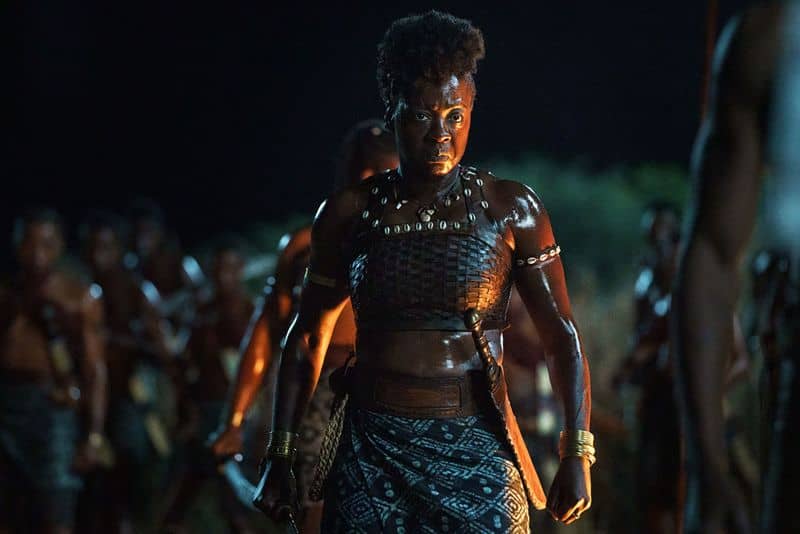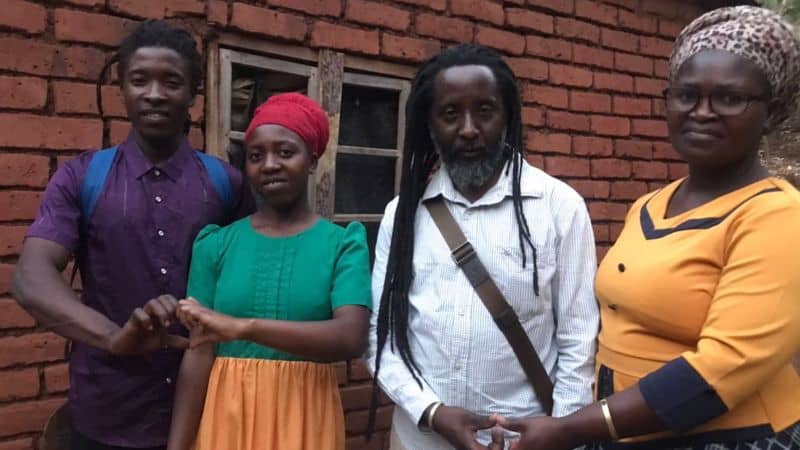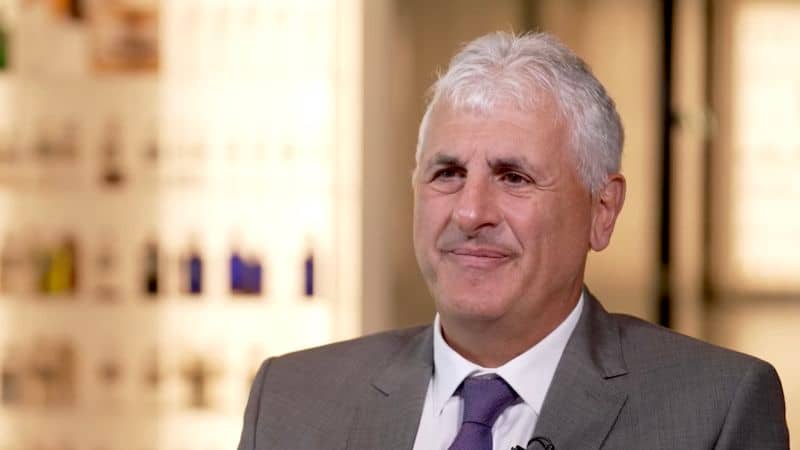Although “inspired by true events,” “The Woman King” clearly isn’t tethered to them, using the underlying story of 19th-century female warriors in an African kingdom as the jumping-off point for a rousing
CNN
—
In New York City, hundreds of migrants are staying in current or former school gymnasiums.
In Chicago, dozens of migrants have been sleeping in a police station.
And in Florida, where the Republican governor has sent migrants to Democratic-led cities across the country, the state has hired three companies to relocate migrants from the state.
While the surge of new migrants after last week’s expiration of Title 42 was not as large as many expected, the scramble to place asylum seekers who trekked thousands of miles to flee violence or crushing poverty has yielded widespread tensions within and between states.
And more parts of the US could suddenly find themselves with unexpected migrants.
About 300 migrants have been placed in current and former school gyms in New York City, a source familiar with the planning process told CNN.
As of Monday, 220 migrants were in the gym of a former school on Staten Island, the source said. Less than 80 migrants have been housed at a gym at PS 188 on Coney Island, and fewer than 30 have been placed at a gym at PS 17 in Williamsburg, the source said.
The gyms are not physically connected to the schools, the source added.
Some New York City parents were dismayed or bewildered to learn of the city’s plan to temporarily house migrants in 20 school gyms.
“I would like other places to be considered,” Samantha Clark told CNN affiliate WABC. “Our school is tiny. We can barely fit in it as it is.”
Aramis Rosa said he sympathizes with the migrants but also opposes the plan to house them in school gyms.
“We’re not against them,” Rosa told WABC. “They’re all welcome – just not to our school, next to our children.”
Mayor Eric Adams has said the migrants would not interact with students, but that did little to assuage concerns from parents.
Outside PS 17 in Brooklyn, a group of parents and students protested Wednesday morning over migrants being housed in the school’s gym.
About 100 people marched around the block chanting, “We want our gym back!” and “Let us play!”
Parents and children alike carried signs reading, “We need recess,” “No asylum on school grounds,” and “Safety first.”
One protest organizer stressed the need to support migrants – though she didn’t think housing them on school grounds was appropriate.

“What we’re gonna do is we’re going to support them. All of you kids are going to help us write notes, and we’ll make care packages, for all the people coming through here,” the organizer announced to the crowd.
“We wish them well. We care. But they shouldn’t be on school grounds, and not in a place that only has three bathrooms for 100 people, right?”
Elsewhere in the state, a New York state supreme court judge has granted a temporary restraining order blocking New York City’s mayor from sending asylum seekers to nearby Orange County to try to ease the influx of migrants arriving in the nation’s most populous city.
The order, requested last week by Orange County Executive Steven Neuhaus, allows for the 186 asylum seekers already staying at the Crossroads Hotel and Ramada by Wyndham in the town of Newburgh to stay in the county, according to the filing.
But new migrants won’t be allowed to stay at the hotels if any of the current occupants leave, the order states.
The pushback comes as New York City scrambles to house a crush of migrants – some of them bused to New York by Republican governors and local officials from Southern states.
Since last spring, New York City has processed more than 65,000 migrants and around 35,000 remain in the city’s care, city officials have said. The city has opened more than 140 emergency shelters and eight large-scale humanitarian relief centers to manage the crisis, the mayor said.
And a wave of new asylum seekers arrived last week with the expiration of Title 42 – the Trump-era policy enacted early in the Covid-19 pandemic that allowed authorities to quickly expel migrants at US land borders.
New York Gov. Kathy Hochul last week asked for federal government assistance with constructing and operating temporary shelters “in anticipation of several thousand asylum seekers arriving in New York City every week.”
Adams’ office said it’s disappointed in the judge’s ruling.
“New York City has cared for more than 65,000 migrants – sheltering, feeding, and caring for them, and we have done so largely without incident,” Adams’ press secretary Fabien Levy told CNN on Tuesday night.
“We need the federal government to step up, but until they do, we need other elected officials around the state and country to do their part. New York City is out of space and we’re only asking Orange County to manage approximately ¼ of 1% of the asylum seekers who have come to New York City, with New York paying for shelter, food, and services.”
But the executive of Orange County said, “New York City should not be establishing a homeless shelter outside of its borders in Orange County.”
“The city is a self-proclaimed sanctuary city; Orange County is not,” Neuhaus said in a statement. “We should not have to bear the burden of the immigration crisis that the Federal government and Mayor Adams created, and I will continue to fight for Orange County’s residents in regard to this important manner.”
The New York Immigration Coalition, an immigrant’s rights advocacy group, criticized both Adams and Neuhaus, saying the two need to start working together in coordinating and addressing the needs of asylum seekers in the region.
“But County Executive Neuhaus shouldn’t be gloating about the judge’s temporary restraining order. His actions in response to asylum seekers to his region have been shameful – he has done nothing more than stoke fear and resentment in his community,” NYIC Executive Director Murad Awawdeh said in a statement.
“At a moment when he should be choosing to welcome, he has instead chosen cruelty.”
Hundreds of migrants have been staying in Chicago city buildings after they were “inhumanely” bused to Chicago, former Mayor Lori Lightfoot said earlier this month, according to CNN affiliate WBBM.
During her final days in office, Lightfoot issued an emergency declaration in hopes of getting federal and state money to help the city respond to the crisis.
More than 70 migrant families were staying in the Chicago Police Department’s 12th district station.
“I’ve been here for two weeks,” Johon Torres, a migrant from Venezuela, told WBBM. Torres was joined by his three daughters and niece.
The families in limbo have received donated supplies from refugee organizations, good Samaritans and even some police officers.
But the situation is not tenable, said Sgt. James Calvino of the Chicago Police Sergeants’ Association.
“It’s ballooned exponentially – way out of control,” Calvino told WBBM.
Florida Gov. Ron DeSantis’ administration has chosen three companies to execute the next phase of its migrant relocation program, according to documents obtained by CNN.
The Florida Division of Emergency Management selected Vertol Systems Company Inc., ARS Global Emergency Management and GardaWorld Federal Services to “manage and implement a program to relocate individuals” who have been processed and released by the US government, according to a FDEM document.
The contract sets up the framework to once again send migrants to Democratic-led cities, as seen in 2022 when Vertol Systems Company Inc., provided two planes to relocate migrants from San Antonio, Texas, to Martha’s Vineyard, Massachusetts, under DeSantis’ direction.
The state requires vendors to be “solely responsible” from beginning to end of the transporting of participants, including social services that should be provided to them at the destination cities.
The newly selected vendors are tasked with providing ground and air transportation services to assist with what the DeSantis administration is calling the “voluntary relocation of Inspected Unauthorized Aliens,” who have agreed to be relocated from “Florida, or another state, to a location within the United States.”
The FDEM did not indicate the number of migrants expected to be transferred and says it will be determined “based on circumstances on the ground.” One vendor noted its capability of moving 40-50 passengers per week, or about 2,200 a year.
A document showing questions and answers between unnamed vendors and the FDEM, posted on the state’s contract procurement website, sheds light on how the state wants the companies to carry out the program.
One vendor mentioned California, New York, and Georgia as potential destinations for flights originating from Florida.
The state wants vendors to start transportation of migrants “within 72 hours of notification by the Division,” and must fulfill their contract until June 30, 2025, unless terminated earlier.
In response to a question about handling the transportation of minors, FDEM said it does not “anticipate relocating juveniles without a parent or guardian.”
FDEM said it anticipates this contract to be “turnkey,” saying “vendors will locate and identify, vet and verify individuals for program eligibility and transport.”
The document states $10 million has been allocated to FDEM for the 2022-23 fiscal year for this program, which expires June 30.
CNN has reached out to Vertol Systems Company, ARS Global Emergency Management and GardaWorld Federal Services for comment.
Don't Miss
CNN — For years, Alli Nansolo grappled with whether to cut his son’s dreadlocks or not. Although it is not
CNN — Brazilian police searching the house of former President Jair Bolsonaro’s justice minister found a draft decree proposing the
CNN — Two buses carrying migrants arrived Thursday at the US Naval Observatory – the vice president’s residence in Washington,
Editor’s Note: US Rep. Barbara Lee is a Democrat representing California’s 12th congressional district. She was the only member of Congress to vote against the 2001 AUMF to go to war in Afghanistan, and helped lead the opposition against the 2002 AUMF to go to war with Iraq. She is the co-chair of the Policy and Steering Committee and serves on the Budget and Appropriations Committee. Bridget Moix is the general secretary of the Friends Committee on National Legislation, a national, nonpartisan Quaker organization that lobbies the federal government to advance peace, justice and environmental stewardship. The views expressed in this commentary are their own. View more opinion articles on CNN.
CNN
—
Twenty years ago, the United States invaded Iraq.
There is a tendency to file away chapters of American history of this magnitude as a tragedy of the past, a somber anniversary to reflect upon before redirecting our attention back to the demands of the present moment. Today – after Iraqi dictator Saddam Hussein’s quick toppling led to eight years of brutal conflict that killed more than 126,000 Iraqi civilians and 4,500 US service members– the US and Iraqi governments consider themselves to be strategic partners.

But a dangerous remnant of the Iraq war is still with us: the 2002 Authorization for Use of Military Force Against Iraq. And from our vantage points, one of us in the halls of Congress, the other at the head of a Quaker peace group with thousands of grassroots advocates nationwide, the momentum has never been stronger to finally get this outdated legislation off the books.

The 2002 Iraq AUMF was passed by Congress in October of that year with overwhelming majorities in both chambers. We voiced our opposition at the time, but our calls were drowned out by the drums of war. Our stance was rooted in concerns that ended up coming to fruition — we felt that the United States was rushing into war without a full understanding of the situation and we feared that such recklessness could spiral into a protracted conflict with no clear timeline.
The measure enabled the president to use the US armed forces as “necessary and appropriate” to “defend the national security of the United States against the continuing threat posed by Iraq.” A driving force behind the AUMF was Saddam’s supposed possession of weapons of mass destruction — allegations that were later revealed to be untrue. A few months later, the first planes flew over the Iraqi border, kicking off a “shock and awe” war that would kill hundreds of thousands and cost more than $800 billion.
Even after the war ended in 2011, the 2002 Iraq AUMF lived on. As the Obama administration carried out its campaign against ISIS in 2014, officials cited the 2002 Iraq AUMF as one of the legal justifications for strikes in Iraq and, later, Syria. When President Donald Trump took power, his administration followed suit, leaning on the 2002 Iraq AUMF in 2018 to justify the continued use of force against ISIS in Iraq and Syria, while reserving the right to also use it “elsewhere.”
That threat should be cause enough to repeal it. But by allowing the authorization to remain on the books, lawmakers in Congress are also abdicating a core constitutional responsibility. Our nation’s founders vested Congress with the sole power to decide when and where our country goes to war, and this power was granted for good reason: They knew that in a democratic system of checks and balances, no one person should have unilateral say over matters of war and peace.
Fortunately, members of Congress from both sides of the aisle are becoming increasingly convinced of this truth. In the last session of Congress, a bipartisan bill to repeal the 2002 Iraq AUMF passed the House floor by a vote of 268-161. In the Senate, similar legislation from Democratic Sen. Tim Kaine of Virginia and Republican Sen. Todd Young of Indiana garnered 51 cosponsors.
This support has carried through to the 118th Congress — in our conversations with other lawmakers and grassroots advocates alike over the past few weeks, we’ve heard a loud growing chorus of voices calling for repeal of the 2002 Iraq AUMF. From libertarian activists to veterans to pacificist organizations, from constitutional conservatives to progressives, there’s a broad and united call for action that transcends party or faction.
The Senate is doing its part. On Thursday, the chamber cleared a key procedural hurdle to repeal the 2002 Iraq AUMF, setting the stage for a full floor vote next week. If and when the measure passes, the House should move swiftly to hold a vote on its companion bill, HR 932. President Joe Biden has indicated that he’ll sign the legislation if it reaches his desk, and we should take him up on that as soon as possible.
Americans are desperate for a sign that Congress can still work across the aisle to bolster our democracy and create a safer world. By repealing the 2002 Iraq AUMF, lawmakers can demonstrate their commitment to the constitution and to reining in endless wars. Let this 20th anniversary of the invasion of Iraq be more than a moment of remembrance. Let it serve as an inflection point in reasserting congressional authority over war, and let it be a reminder that Republicans and Democrats can still join hands for the sake of our constitution and country.
Don't Miss
CNN — Axl Rose is ending a 30-year Guns N’ Roses tradition. The band’s frontman recently posted a note saying
CNN — For years, Alli Nansolo grappled with whether to cut his son’s dreadlocks or not. Although it is not
CNN — Novak Djokovic cruised through to the US Open final after a dominant 6-3 6-2 7-6 (7-4) win against

New York
CNN
—
Global politics will be dominated by the availability, trade and investment in microchips for the next several decades, Intel CEO Pat Gelsinger told CNN Tuesday.
The location of “oil reserves [has] defined geopolitics for the last five decades,” Gelsinger said in an interview with CNN’s Julia Chatterley at the World Economic Forum in Davos. “Where the technology supply chains are, and where semiconductors are built, is more important for the next 5 decades.”
Gelsinger said the company’s investment in new manufacturing facilities in the United States, Europe and elsewhere is important not only for the company’s future, but for the “globalization of the most critical resource to the future of the world.”
“We need this geographically balanced, resilient supply chain,” he said.
Intel
(INTC) said last year it would invest $20 billion to build two new US chipmaking facilities, as well as up to $90 billion in new European factories, aimed at reasserting its position as the leader of the semiconductor industry. The announcements also came amid concerns about the concentration of manufacturing for chips, in Asia, particularly China and Taiwan, during the Covid-19 pandemic and as geopolitical tensions grew. Issues in the chip supply chain in recent years have caused shortages and shipping delays of everything from desktop computers and iPhones to cars.
“If we’ve learned one thing from the Covid crisis and this multi-year journey that we’ve been on it’s we need resilience in our supply chains,” Gelsinger said, adding that Intel’s manufacturing investments are aimed at “leveling that playing field so that good investment decisions can be made.”
Gelsinger — who took over as Intel’s chief executive two years ago during a difficult period for the company — acknowledged that the company’s investments in a decades-long strategy are coming during a difficult economic period.
“It’s a touch economic environment in the near term — Covid and China, Ukraine and energy in Europe, inflation in the US — you look across that and ask, ‘Where’s the good news?’” he said. “But at the same time, we need to make long-term investments, three quarter economic environments cannot dictate five- and six-year capital investment cycles … It’s a challenge to be a CEO these days.”
A US law passed last year to boost domestic chipmaking should help. The CHIPS and Science Act will invest more than $200 billion to help companies grow US domestic chip-making and research.
Now, Gelsinger said, Intel and other chipmakers are just waiting for the funds from the law to get dispersed, after President Joe Biden last year directed a steering committee including Commerce Secretary Gina Raimondo to determine how to implement the law and deploy the funds.
“We expect we’ll see those this year,” Gelsinger said of the CHIPS Act funds. “I’m investing, please show up with the money. Because we’re assuming they’ll help us make these massive investments.”
Don't Miss
London CNN — When Africa needs medicines, all too often the continent must look abroad. African nations consume about 25%
CNN — Axl Rose is ending a 30-year Guns N’ Roses tradition. The band’s frontman recently posted a note saying
‘Putin is a killer,’ says Ukraine goalkeeper as he sends a message of hope to his country Shaktar Donetsk and
CNN
—
As midterm results continue to roll in days after Election Day, Democratic and Republican candidates have already been celebrating historic victories.
Heading into Election Day, both parties were looking to diversify their ranks of elected officials, both in Congress and beyond, and they appear on track to do so.
House Republicans will add new members of color to their conference, including John James, who will be the first Black Republican congressman from Michigan, and Juan Ciscomani, who will be the first Latino Republican to represent Arizona in Congress.
Democrats will make a breakthrough for LGBTQ representation in governor’s offices. In Massachusetts and Oregon, Democrats Maura Healey and Tina Kotek will become the nation’s first out lesbian governors.
Republican Sarah Huckabee Sanders, the former Trump White House press secretary, will be the first female governor of Arkansas. And Maryland Democrat Wes Moore will be the state’s first Black governor.
There are still several races that have not yet been called. But for now, here’s a look at the candidates who CNN projects will make history in the 2022 midterms.
This list will be updated as more winners are projected.

AL-SEN: Republican Katie Britt will be the first elected female senator from Alabama, CNN projects, winning an open-seat race to succeed her onetime boss, retiring GOP Sen. Richard Shelby. Britt is a former CEO of the Business Council of Alabama and was the heavy favorite in the general election in the deep-red state. Two women have previously represented Alabama in the Senate, but both were appointed to fill vacancies.
AZ-06: Juan Ciscomani will be the first Latino Republican elected to Congress from Arizona, CNN projects, winning election to the state’s 6th Congressional District. Ciscomani, who was born in Mexico and immigrated to the US with his family as a child, previously worked at the Tucson Hispanic Chamber of Commerce and was a senior adviser to Arizona Gov. Doug Ducey.

AR-GOV: Republican Sarah Huckabee Sanders will be the first woman elected governor of Arkansas, CNN projects, winning the office her father previously held for over a decade. Sanders, who earned a national profile in her role as press secretary in the Trump White House, is also the first daughter in US history to serve as governor of the same state her father once led.
AR-LG: Republican Leslie Rutledge will be the first woman elected lieutenant governor of Arkansas, CNN projects. Rutledge, the state attorney general, originally sought the open governor’s seat but switched to the lieutenant governor’s race after Sanders entered the GOP gubernatorial primary. Lieutenant governors are elected on separate tickets in Arkansas.
With the election of Sanders and Rutledge, Arkansas will join Massachusetts as the first states to have women serving concurrently as governor and lieutenant governor.
CA-SEN: Democrat Alex Padilla will be the first elected Latino senator from California, CNN projects, winning a special election for the remainder of Kamala Harris’ term as well as an election for a full six-year term. Padilla, the son of Mexican immigrant parents, was appointed by California Gov. Gavin Newsom to the seat Harris vacated when she became vice president.
CA-SOS: Democrat Shirley Weber will be California’s first elected Black secretary of state of state, CNN projects. Weber, a former state assemblywoman, has been serving in the position since last year after Newsom picked her to succeed Padilla, who was appointed to the US Senate.
CA-AG: Democrat Rob Bonta will be California’s first elected Filipino American attorney general, CNN projects. Bonta, who was born in the Philippines and immigrated with his family to the US as an infant, has been serving in the position since last year after Newsom appointed him to succeed Xavier Becerra, who left to become President Joe Biden’s Health and Human Services secretary.
CA-42: Democrat Robert Garcia will be the first out LGBTQ immigrant elected to Congress, CNN projects, winning election to California’s 42nd Congressional District. Garcia, who immigrated from Lima, Peru, in the early 1980s at the age of 5, is the current mayor of Long Beach.
Los Angeles Mayor: Democrat Karen Bass will be the first woman and the first Black woman elected mayor of Los Angeles, CNN projects. Bass, who currently represents a Los Angeles-area House seat, will defeat real estate developer Rick Caruso. Bass was on Joe Biden’s short list for a running mate in the 2020 campaign. She’s no stranger to making history: She previously served in the California State Assembly, where in 2008 she became the first Black woman to serve as speaker of a state legislature.
Bass said on November 17, the day after her race was called, that the accomplishment of becoming the first female mayor of Los Angeles and the magnitude of the job was “sinking in.”
“To me, when you do make history, when you’re in a position like this – and I was in a similar position when I was sworn in as speaker – it means that you have extra responsibility. You always have to make sure that you maintain excellence in every step of the way,” she said. “The path that you go is laying the foundation for those that come behind you.”
CO-08: Democrat Yadira Caraveo will be the first Latina elected to Congress from Colorado, CNN projects, winning the race for the state’s new 8th Congressional District. Caraveo, a state representative and the daughter of Mexican immigrant parents, will defeat Republican state Sen. Barbara Kirkmeyer to win the seat located north of Denver.
CT-SOS: Democrat Stephanie Thomas will be the first Black woman elected secretary of state of Connecticut, CNN projects. Thomas, a member of the Connecticut House, will succeed appointed Democratic incumbent Mark Kohler.

FL-10: Democrat Maxwell Frost will be the first member of Generation Z elected to Congress, CNN projects, winning the open seat for Florida’s 10th Congressional District. Generation Z refers to those born after 1996. Frost will succeed Democrat Val Demings, who vacated the seat to run for Senate.
The 25-year-old representative-elect told CNN’s Poppy Harlow on November 9 that when President Joe Biden called to congratulate him, the President recalled being too young to be sworn in as a senator when he was first elected at age 29.
“He asked me if it was the same situation. I said, ‘No, Mr. President, you had me beat on that. I’m already old enough to be sworn in on January 3.’ So, it was great to talk with him. You know, he was elected at a very young age, too, so he understands that experience,” Frost said on “CNN This Morning.”
Frost, who made reducing gun violence a central part of his campaign, also told CNN that he will work to pass universal background checks in Washington.
IL-03: Democrat Delia Ramirez will be the first Latina elected to Congress from Illinois, CNN projects, winning election to the state’s redrawn 3rd Congressional District. Ramirez, a Chicago-area state representative and the daughter of Guatemalan immigrants, was also the first Guatemalan American to serve in the Illinois General Assembly.
IL-17: Democrat Eric Sorensen will be the first out gay person elected to Congress from Illinois, CNN projects, winning election to the state’s 17th Congressional District. Sorensen, a former Rockford and Quad Cities meteorologist, will defeat Republican Esther Joy King in the race to succeed retiring Democratic Rep. Cheri Bustos.

MD-GOV: Democrat Wes Moore will be the first Black governor of Maryland, CNN projects, becoming only the third Black person elected governor in US history. Moore, an Army veteran and former nonprofit executive, will succeed term-limited Republican Gov. Larry Hogan.
MD-LG: Democrat Aruna Miller will be the first Asian American lieutenant governor of Maryland, CNN projects. Miller, who immigrated to the US with her family from India as a child, is a former member of the state House of Delegates. She was elected on the same ticket as Moore.
MD-AG: Anthony Brown will be the first Black person elected attorney general of Maryland, CNN projects. Brown, who currently represents Maryland’s 5th Congressional District, has a been a longtime fixture in state politics, having also served as state lieutenant governor and in the state House and run for governor in 2014.

MA-GOV: Democrat Maura Healey will be one of the first out lesbian governors in US history, CNN projects, winning an open-seat race for the governorship of Massachusetts. Healey, the current attorney general of Massachusetts, will also be the commonwealth’s first elected female governor. Also making history with Healey as one of the nation’s first out lesbian governors is Oregon Democrat Tina Kotek.
With the election of Healey and her running mate, Kim Driscoll, Massachusetts will join Arkansas as the first states to have women serving concurrently as governor and lieutenant governor.
MA-AG: Democrat Andrea Campbell will be the first Black woman elected attorney general of Massachusetts, CNN projects. Campbell, who ran for Boston mayor last year, was previously the first Black female president of the Boston City Council.
MI-10: John James will be the first Black Republican elected to Congress from Michigan, CNN projects, winning election to the state’s 10th Congressional District. James, who lost bids for US Senate in 2018 and 2020, will defeat Democrat Carl Marlinga in the open-seat race for the redrawn suburban Detroit district.
MI-13: Democrat Shri Thanedar will be the first Indian American elected to Congress from Michigan, CNN projects, winning election to the state’s 13th Congressional District. Thaneder, who immigrated to the US from India, was elected to the Michigan House in 2020 and unsuccessfully sought the Democratic nomination for governor in 2018.
NV-SOS: Democrat Cisco Aguilar will be the first Latino elected secretary of state of Nevada, CNN projects. Aguilar, who is Mexican American, will defeat Republican nominee Jim Marchant, a former state assemblyman who has repeatedly promoted false conspiracy theories about elections in Nevada.
NY-GOV: Democrat Kathy Hochul will be the first elected female governor of New York, CNN projects, winning a full four-year term to the office she assumed last year after Gov. Andrew Cuomo resigned. Hochul, who previously served as the state’s lieutenant governor and a Buffalo-area congresswoman, will defeat Republican Lee Zeldin.
NY-03: Republican George Santos will be the next congressman from New York’s 3rd Congressional District, CNN projects, winning the first House election between two out gay candidates. Santos, an investor and the son of Brazilian immigrants, will defeat Democrat Robert Zimmerman for the Long Island-based seat.
OH-09: Democrat Marcy Kaptur will win a 21st term to the House from Ohio, CNN projects, and will become the longest-serving woman in Congress when she’s sworn in next year to represent the state’s 9th Congressional District. Kaptur, who was first elected in 1982 and is currently the longest-serving woman in House history, will break the record set by Barbara Mikulski, who represented Maryland in the House and Senate for a combined 40 years.

OK-SEN: Republican Markwayne Mullin will be the first Native American senator from Oklahoma in almost 100 years, CNN projects, winning the special election to succeed GOP Sen. Jim Inhofe, who is resigning in January. Mullin, a member of the Cherokee Nation, currently represents the state’s 2nd Congressional District. Democrat Robert Owen, also a member of the Cherokee Nation, represented Oklahoma in the Senate from 1907 to 1925.
OR-GOV: Democrat Tina Kotek will be one of the first out lesbian governors in US history, CNN projects, after winning an open three-way race for the governorship of Oregon. Kotek, a former speaker of the state House, will succeed term-limited Democratic Gov. Kate Brown. She will share the distinction as the nation’s first out lesbian governor with Massachusetts Gov.-elect Maura Healey.
OR-05: Republican Lori Chavez-DeRemer will join Democrat Andrea Salinas as the first Latino members of Congress from Oregon, CNN projects. Chavez-DeRemer, who is Mexican American and the former mayor of Happy Valley, will defeat Democrat Jamie McLeod-Skinner in the race to succeed Democratic Rep. Kurt Schrader in Oregon’s 5th Congressional District.
OR-06: Democrat Andrea Salinas will join Republican Lori Chavez-DeRemer as the first Latino members of Congress from Oregon, CNN projects. Salinas, a state representative whose father immigrated to the US from Mexico, will defeat Republican Mike Erickson to win the state’s new 6th Congressional District.
PA-LG: Democrat Austin Davis will be the first Black lieutenant governor of Pennsylvania, CNN projects, winning election on a ticket with gubernatorial nominee Josh Shapiro. Davis is currently a member of the Pennsylvania House representing a Pittsburgh-area seat. He will be elected on a ticket with Democratic gubernatorial nominee Josh Shapiro.
PA-12: Democrat Summer Lee will be the first Black woman elected to Congress from Pennsylvania, CNN projects, winning election to the state’s 12th Congressional District. Lee, a Pittsburgh-area state representative, will succeed retiring Democratic Rep. Mike Doyle.

VT-AL: Democrat Becca Balint will be the first woman elected to Congress from Vermont, CNN projects, winning election to the state’s at-large district. With Balint’s win, Vermont will lose its distinction as the only US state never to have sent a woman to Congress. Balint, the president pro tempore of the state Senate, will also be the first out LGBTQ person elected to Congress from Vermont.
VT-AG: Charity Clark will be the first woman elected attorney general of Vermont, CNN projects. Clark previously served as chief of staff to Democratic Attorney General T.J. Donovan, who stepped down in June for a private sector job.
WA-03: Marie Gluesenkamp Perez will be the first Latino Democrat elected to Congress from Washington state, CNN projects, winning election to the state’s 3rd Congressional District. Gluesenkamp Perez, an auto repair shop owner whose father immigrated to the US from Mexico, will defeat Republican Joe Kent to succeed GOP Rep. Jaime Herrera Beutler, who finished third in the August top-two primary. Herrera Beutler was herself the first Hispanic member of Congress from Washington state.
This story has been updated with additional developments.
CORRECTION AND UPDATE: An earlier version of this story was updated to reflect that CNN had not projected a result in Colorado’s 8th Congressional District at that point. On November 18, 2022, CNN projected Democrat Yadira Caraveo as the winner.
“Jeopardy!” fans are confused and more than a little miffed after a controversial Final Jeopardy! clue divided contestants in the final rounds of the program’s “Tournament of Champions.” This is the second clue controversy the program has faced in just a few days.
Amy Schneider, Andrew He and Sam Buttrey are the final champions standing in the tournament, and the first person to win three rounds will be the ultimate victor. In Wednesday’s episode, the trio was faced with this clue, under the category “New Testament”:
“Paul’s letter to them is the New Testament epistle with the most Old Testament quotations.”

The statement isn’t controversial because it’s about the Bible. That’s not an uncommon topic on the trivia show. But the correct answer is still a subject of debate, even among Biblical scholars.
Schneider answered “Who are the Hebrews,” and was deemed correct by host Ken Jennings.
Buttrey answered “Who are the Romans,” and was deemed incorrect.
He said “Philippiaes,” likely in reference to the Philippians, which was also incorrect.
All of the answers refer to books in the Bible that are collections of epistles, or letters, ostensibly from Jesus’ apostle Paul to different groups in the formative days of the Christian church. However, experts have varying opinions on whether Paul actually wrote the letter to the Hebrews – and thus, whether the answer was actually correct. In fact, there are bitter divisions among different schools of Christian thought regarding Paul’s Biblical influence and authorship.
Many “Jeopardy!” viewers thought Buttrey’s answer should have been the correct one, since scholars generally agree Paul was the author of the book of Romans.
Even experts on religion and history weighed in.
“The challenge: Hebrews has the most OT quotes of any NT letter; it was historically attributed to Paul; but today most argue he didn’t write it based mainly on internal evidence,” a priest and theology professor wrote on Twitter. “(Romans is right if Paul didn’t write Hebrews),” he added.
“Dear Jeopardy: But Paul didn’t write Hebrews!!!!!!!” wrote another historian and theologian.
Others postulated that, regardless of the answer, the clue was not clearly worded in regards to letters, epistles and books of the Bible – all deeply confusing terms for people outside (and sometimes inside) the spheres of Biblical study.
In the middle of the confusion, He emerged as the night’s winner despite his incorrect Final Jeopardy! answer, and is one win away from tournament victory.
It’s worth noting that Buttrey, who had the answer some people think should have been correct, is a fan favorite and would have won if he secured the last answer.
Just a few days before the Bible kerfuffle, an episode of “Celebrity Jeopardy!” featured a clue about the 2021 death of Instagram personality Gabby Petito and the suicide death of her boyfriend, Brian Laundrie, who wrote that he was responsible for her murder.
“In 2021 fugitive Brian Laundrie ended his days in FLA’s Myakkahatchee Creek area, home to these long & toothy critters,” the clue read.
(The answer was “What are alligators?”)
Viewers were appalled that the question invoked both suicide and a highly publicized murder.
“Y’all couldn’t have gotten to alligator AAAAAANY other way???” one viewer wrote.
In a statement to various media organizations, an attorney for the Laundrie family demanded an apology from the show, calling the question “distasteful.”
Don't Miss
London CNN — The UK’s controversial policy to deport some asylum seekers to Rwanda was deemed lawful by the country’s
‘It felt electric from the time we took the field’: Tom Brady speaks about first NFL game in Germany Tom
CNN — The beers were well and truly on Pádraig Harrington on Sunday. Surging towards an emphatic victory at the
“Bringing Mark home has been a top priority for President Biden and his national security team,” the official said.
Haji Bashir Noorzai, a prominent member of the Taliban, who was in prison in the US on drug trafficking charges for 17 years, was granted clemency as part of the deal, the official said.
Frerichs, a Navy veteran from Illinois, was kidnapped in late January 2020 while he was doing construction contract work in Afghanistan. He was believed to be held by the Haqqani network, which is a faction of the Taliban. He was missing for less than a month before the US signed a peace deal with the Taliban.
Frerichs was able to walk on his own onto the aircraft, a source familiar with the matter said, and his physical and mental condition appear good. He is currently in Doha, Qatar.
Frerichs’ family praised Biden for securing his release, with his sister, Charlene Cakora, saying in a statement, “there were some folks arguing against the deal that brought Mark home, but President Biden did what was right. He saved the life of an innocent American veteran.”
“I am so happy to hear that my brother is safe and on his way home to us. Our family has prayed for this each day of the more than 31 months he has been a hostage,” Cakora said. “We never gave up hope that he would survive and come home safely to us.”
Earlier this year, The New Yorker published a video of Frerichs pleading for his release — the first time the Illinois native had been seen in years.
“I’ve been patiently waiting my release,” Frerichs says in the brief video, which he says is being recorded on November 28, 2021.
Months of negotiations
The Biden administration undertook months of negotiations with the Taliban to secure Frerichs’ freedom, a senior administration official said Monday, and the President decided in June to grant clemency to Noorzai if it would lead to the captive American’s release.
Speaking on a call with reporters, the official said it became clear that releasing Noorzai was “the key to securing Mark’s overdue freedom,” but the decision on clemency for the Afghan drug trafficker was a “difficult” one.
The administration does not see an equivalency between Noorzai, who was carrying out a 17-year sentence in the US, and Frerichs. Noorzai was not held at Guantanamo Bay, despite reports saying he was, the official said.
“We consulted with experts across the US government, who assessed that Noorzai’s (release) to Afghanistan would not materially change any risk to Americans emanating from the country or the nature of the drug trade there,” the official said.
“As we also said publicly at the time, we told the Taliban immediately after the strike, that we would hold them directly responsible if any harm were to come to Mark, and that the best way they might begin to rebuild trust with the United States, with the world, was to immediately release Mark,” the official said.
The official said the window of opportunity for the swap finally presented itself this month, and the administration “acted very quickly.” But they would not say where Frerichs had been held during his more than two years of captivity, nor would they say if the US had given the Taliban anything else for Frerichs’ release.
A second senior administration official said the US would continue to make clear to the Taliban that they must end hostage taking if they are to gain recognition by the international community.
Don't Miss
CNN — Before a ball was even hit at this year’s US Open, many would have predicted three of the
How Afghanistan women’s football team made it to Australia Playing football for your national team is a dream for many,
CNN — Jimmy Lippert Thyden says he always knew he was adopted. He also knew that he had been born
“We highly appreciate the balanced position of our Chinese friends in connection with the Ukrainian crisis. We understand your questions and concerns in this regard,” Putin said in an opening speech of the meeting. “During today’s meeting, of course, we will explain in detail our position on this issue, although we have spoken about this before.”
The two authoritarian leaders have emerged as close partners in recent years, propelled by growing conflict with the West and a strong personal bond.
China has offered tacit support for Russia’s actions in Ukraine, while Moscow has backed Beijing and criticized Washington over US House Speaker Nancy Pelosi’s visit to Taipei in August. Beijing responded to her trip with unprecedented military drills around the self-governing democratic island, which it claims as its own territory.
In their meeting Thursday, Putin condemned the United States for what he said were “provocations” in the Taiwan Strait, and criticized what he claimed were attempts to “create a unipolar world.” Those attempts, he said, have “recently taken an ugly shape and are absolutely unacceptable to most states on the planet.”
The two are holding talks on the sidelines of a summit of the Shanghai Cooperation Organization, a regional security-focused grouping that also includes India, Pakistan and four Central Asian nations.
In a symbolic show of force and unity, Russian and Chinese navies conducted joint patrols and exercises in the Pacific Ocean just hours before their leaders’ meeting, according to Russia’s Ministry of Defense.
At the start of the meeting Thursday, Putin stressed the deepening economic ties between China and Russia, noting bilateral trade exceeded $140 billion last year. “I am convinced that by the end of the year we will reach new record levels, and in the near future, as agreed, we will increase our annual trade turnover to $200 billion or more,” he said.
Putin last met with Xi during a visit to the Chinese capital for its Winter Olympics in February this year. It was at that meeting that the two leaders framed their “no-limits’ partnership, and released a 5,000-word document voicing their shared opposition to the “further enlargement of NATO.”
For Xi, meanwhile, Thursday’s meeting comes as part of his first trip outside of China’s borders in more than two years, and just weeks before he seeks to secure a norm-breaking third term at a major political meeting in Beijing — a move that will cement his status as China’s most powerful leader in decades.
China has turned increasingly inward since the beginning of the pandemic, and continues to maintain a strict zero-Covid policy that limits outbound travel.
Xi’s trip to Central Asia is a return to the world stage and offers him an opportunity to show that despite growing tensions with the West, China still has friends and partners and is ready to reassert its global influence.
In a meeting with Kazakh President Kassym-Jomart Tokayev on Wednesday, Xi said China would like to partner with Kazakhstan to “remain pioneers in Belt and Road cooperation.”
Xi also told Tokayev that “China will always support Kazakhstan in maintaining national independence, sovereignty and territorial integrity,” Chinese state media reported.
The Chinese leader traveled to Uzbekistan on Wednesday evening and met with Uzbek President Shavkat Mirziyoyev. He also met the presidents of Kyrgyzstan, Tajikistan and Turkmenistan Thursday.
Don't Miss
Editor’s Note: Monthly Ticket is a CNN Travel series that spotlights some of the most fascinating topics in the travel
US national security adviser Jake Sullivan confirmed Sunday that the US will allow European countries to start training Ukrainian fighter
A view of the Kremlin in Moscow, Russia, on September 19, 2021. (Alexander Nemenov/AFP/Getty Images) Senior Russian officials at the

As part of the proposed deal, Microsoft could gain ownership of popular video game franchises, including “Call of Duty,” “World of Warcraft” and “Candy Crush.”
UK regulators have expressed concerns that the acquisition could allow Microsoft to restrict that valuable content from other gaming platforms, particularly Sony’s PlayStation.
Earlier this month, the CMA gave Microsoft several days to respond to its preliminary finding with proposed solutions. On Sept. 6, Microsoft declined to make such an offer, the CMA said on Thursday, setting the stage for a phase-two investigation.
Under the agency’s practices, that deeper probe could result in a decision to clear the deal, to impose restrictions or divestitures on the acquisition, or to block the deal outright.
Don't Miss
CNN — Formula One world champion Lewis Hamilton has announced he will have a team competing in the inaugural all-electric
“What they did was so illegal, at a level that you’ve rarely seen before,” Trump said in November 2021. “Now,




























